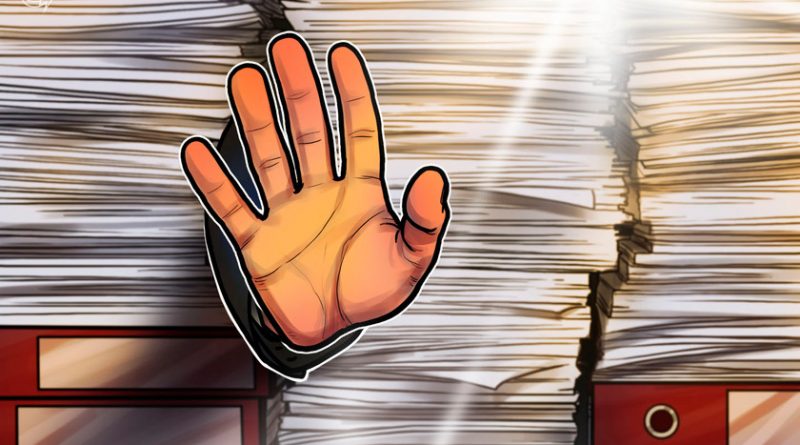New digital dispute rules aim to keep crypto disagreements out of court
New digital dispute rules could keep smart contract disagreements out of the courts with the help of an independent arbitration tribunal.
A British government-sanctioned task force has proposed a dispute resolution framework that would keep cryptocurrency and smart contract disagreements out of the courts.
A 14-page report published by LawTechUK’s UK Jurisdiction Taskforce puts forward new “Digital Dispute Resolution Rules” that aim to provide a standardized means of dealing with smart contract disputes.
Under the remit of the new rules, crypto-based disputes could be resolved without any major intervention by the courts. The laws would allow for the appointment of an independent tribunal to adjudicate on matters of dispute, and any decision reached by the tribunal would be legally binding.
The rules also allow for disputes to be raised without disclosing one’s identity to anyone but the tribunal, retaining some of the anonymity afforded by blockchain technology. The document also lays out the directions and procedures one must take to raise a dispute. Notably, if someone wishes to take advantage of the dispute resolution service, they need only state so in whichever smart contract transaction they are making.
“These rules may be incorporated into a contract, digital asset or digital asset system by including the text (which may be in electronic or encoded form) ‘Any dispute shall be resolved in accordance with UKJT Digital Dispute Resolution Rules,’” the document states.
If a decision by the tribunal needs to be enforced, it can be pursued via courts established on the law of England and Wales. Sir Geoffrey Vos, master of the rolls (the head of civil justice in England and Wales), said he foresaw the rules being implemented in a range of digital transactions in the future.
“I am confident that the Digital Dispute Resolution Rules will be incorporated into many types of digital transaction going forward. The UK Jurisdiction Taskforce will keep a close watch on how the Digital Dispute Resolution Rules are used, and will aim to consider whether experience suggests they need revision within the coming year,” said Vos, in the foreword to the report.




